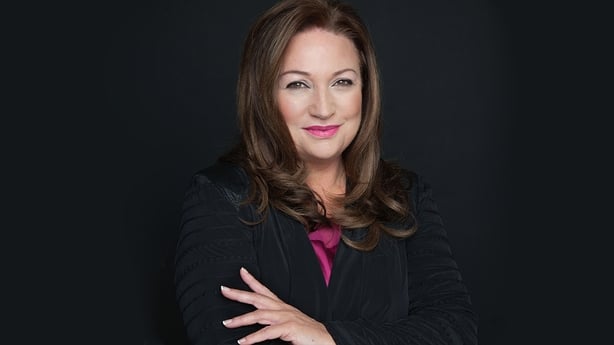Whether it's in business, broadcasting, her career as a nurse or her thirst for academia, Norah Casey is a beacon of success. But despite breaking that glass ceiling, Casey recognises the difficulties women still have making it in the corporate life.
To celebrate International Women's Day, Casey joined LifeStyle Editor Taragh Loughrey-Grant to explain what she feels is holding women back. We've a sneak preview of the interview for you below to celebrate #IWD.
Catch the full interview this coming Saturday, 2pm on RTÉ Radio 1 Extra.
Thanks @TaraghLG for a great interview yesterday #BeBold #IWD @RTERadio1 @LifeStyleRTE @PlanetWoman_ March 24 @TheRDS pic.twitter.com/1sr2OTn5pn
— Norah Casey (@NorahCasey) March 4, 2017
"If you asked the younger Norah Casey did she want to be a businesswoman…I wouldn’t have had a notion" Casey says. "There wasn’t a single businesswoman in my life. I didn’t even know they existed.”
Casey does note, however, that her childhood was filled with the sense of 'possibilities', a hungering for opportunity, with her father's advice still ringing true to her today; “Be the best you can.”
Speaking on what holds women back from success, Casey says "it’s always confidence, not competence, that hold women back."
Casey reflected on her time as a nurse, and her fear of treating burns victims. However, by taking a risk and spending time studying and upskilling in the field, she felt more in control and that she 'could be a nurse for the rest of her life'.
“That core, inner ability to take a risk. To still the voices that tell you not to do something. It’s something that’s always stayed with me. A lot of women don’t get to do that. They’re afraid to go for the next job, or they’re afraid to confront the fear.”
The golden question: And why is this?
“A lot of people grow up where it’s always ‘succeed’" Casey explains.
"Pass your exams, do well, get that job, meet the right person in your life. And then they get into their 20s and something goes wrong and they fall apart.”
“Because failure is just not something we’re raised to feel comfortable with.”
Casey explains that over the course of helping thousands of women in corporate life, there is still one question that she's obsessed with getting the answer to.

“I was always saying... ‘Why is it that Mary and John can arrive in a company in the same day and have the same qualifications and John will be 10 times more likely to get to the corner office in the sky, whereas Mary is more likely to leave?”
It's All In Your Head
For Casey it's not a case of brain power, but how the brain operates.
Ruminating is thinking deeply, or 'mulling over something', and is a special area of the brain which in women, lights up more readily to negative stimuli than it does in men.
“So in other words, if you say something negative to a woman" Casey explains, "She will dwell on it for much longer than a man will, they’ll will dust themselves down and get back in the ring.”
“But women can spend months, sleepless nights, days and days, worrying about something that is either perceived or isn’t pursued. So this need to ruminate is perceived as something that’s quite negative to her.”
"Sometimes in work I’ll talk to a guy whose mentoring a woman and he’ll say ‘She’s still banging on about something the chairman 6 months in the boardroom. She will not move on.’”
There are positives to this difference for women, however, something Casey says should not be overlooked.
“It goes back to that thing of failure. Because women have that ability to dissect something that happened in the past, they’re actually very good at looking at things that go wrong."
With men resisting the idea of 'failure', they're less likely to self check and review. When you consider emergencies as the financial recession, Casey says that level of thinking was needed back then to stop it in it's tracks.
For her it should be a case of “There are things going wrong, lets analyse it!"
Catch the full interview of Norah Casey with The LifeStyle Show this coming Saturday, 2pm on RTÉ Radio 1 Extra.
If you are keen for up-to-the-minute news on food, fashion, parenting, fitness, travel, recipes and more – the Lifestyle Weekly Email will put a smile on your face when it comes into your inbox every Thursday.

